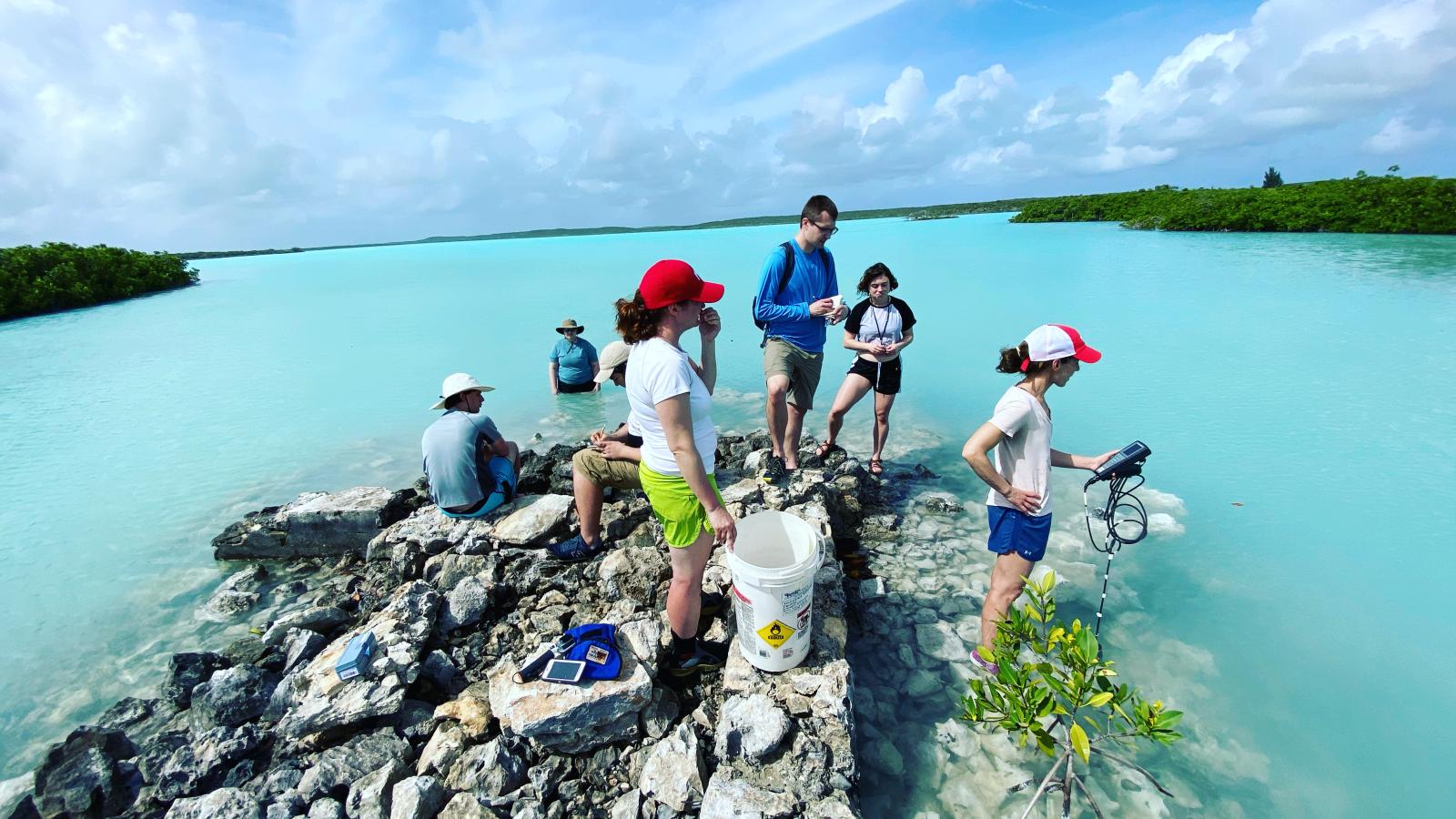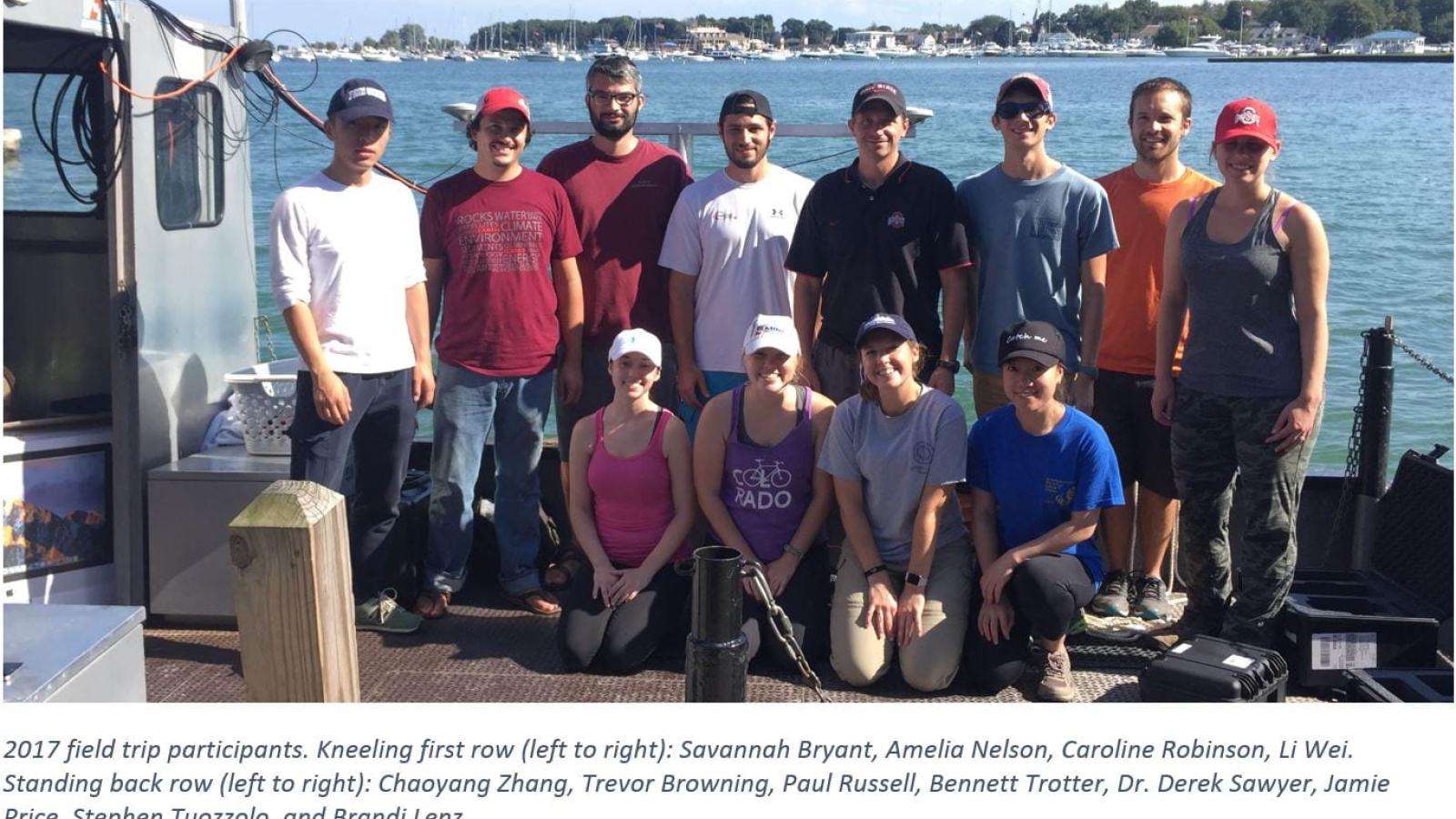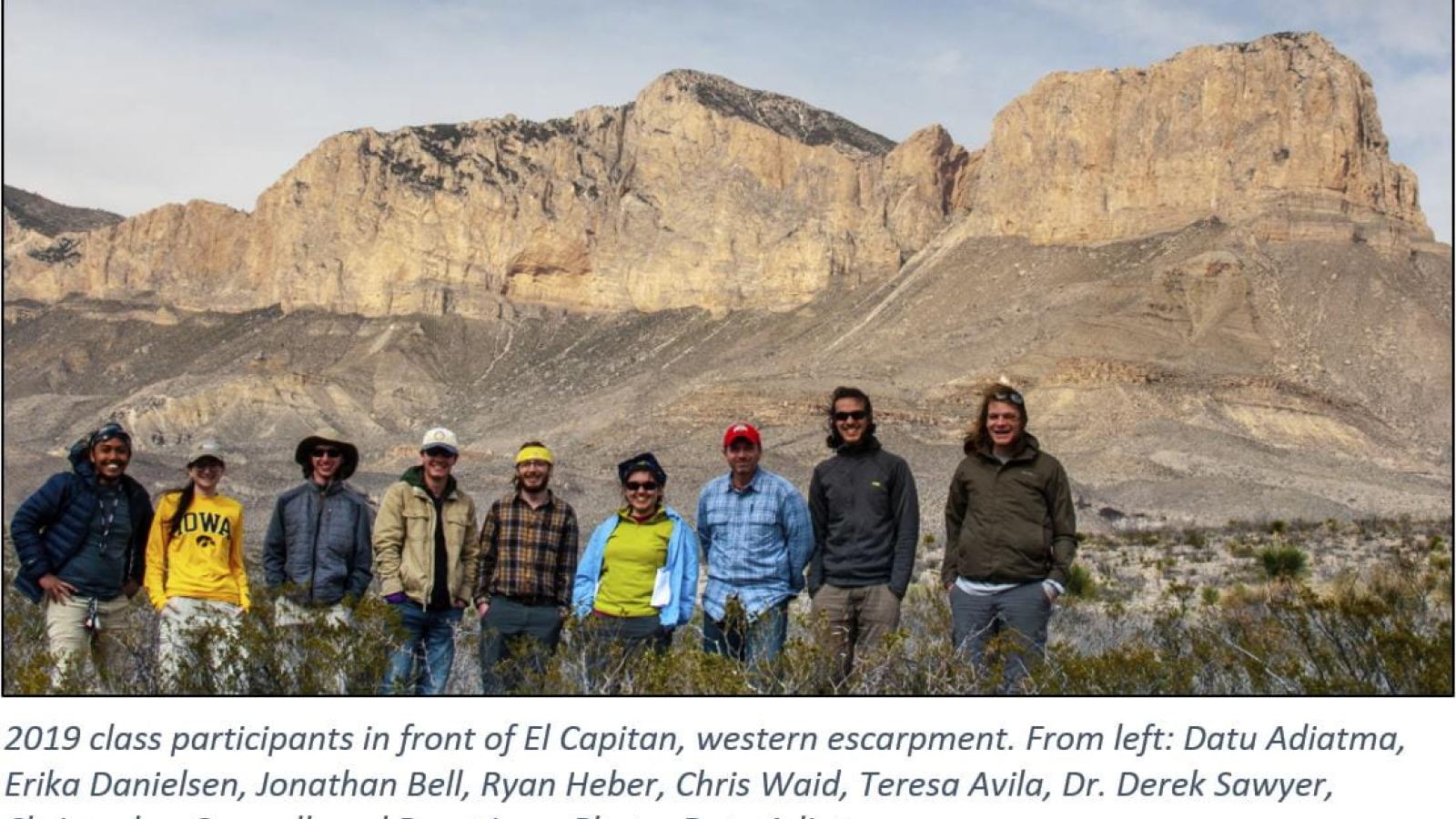Field Courses
The School of Earth Sciences emphasizes the importance of hands-on education, especially in the field. In addition to OSU Field Camp, SES offers several other field courses. Contact the respective professors for more information.
Advanced Historical Geology
Professor Matthew Saltzman
This course includes both a field trip to the central Appalachian Valley and Ridge Province and pre-trip class meetings (lectures and student presentations) on tectonics and sedimentation in the Appalachian Basin. The purpose of the field trip is to examine exceptional exposures of sedimentary rock sequences in West Virginia and Virginia, which reveal the development of the Appalachian Basin during the Ordovician through Devonian. Emphasis on interpretation of depositional environments and fossil occurrences in relation to regional tectonics, global sea level, paleoceanography, and paleoclimate.
Exploring the Natural History of The Bahamas (Study Abroad)
Professor Liz Griffith and Professor Jill Leonard-Pingel
This 5000-level 4-credit course includes a week-long international field-based, hands-on learning experience - providing an introduction to modern carbonate environments, sedimentation and diagenesis, and carbonate island hydrogeology using San Salvador Island, The Bahamas as a microcosm of these environments around the world and discover the impact humans have on the island. Students must apply through the Office of International Affairs linked here. Note that this is a Spring course taught in even years (e.g., 2024, 2026, …), but applications are due early in the prior Autumn semester.
Click here to watch the course video and read about a prior trip here and here!
Environmental Sustainability in Costa Rica
Professor Ozeas Costa
In this integrated multidisciplinary program (which includes lectures in the US and in Costa Rica, group discussions, and in county educational and cultural experiences), we explore the complex relationships between the use and conservation of natural resources and economical development in Costa Rica, In particular the role of protected areas in ensuring the country's environmental sustainability. Visits to a number of in-country locations provide hands-on knowledge to assess different conservation practices and establish the effectiveness of protected areas in promoting environmental sustainability in face of accelerated development.
Coastal Hydrogeology
Professor Audrey Sawyer
This course introduces students to coastal issues in hydrogeology. Topics include ground-water discharge to marine and freshwater coasts, surface water-groundwater interactions, and implications for coastal water quality, ecosystem processes, and water resource management. Through literature reading and discussion, students learn about pressing water resource challenges in coastal zones, and novel scientific methods to address them. The highlight of the semester is a field trip to Lake Erie, where students measure the discharge of groundwater and nutrients from shore.
Seminar in Coastal Geology
Professor Derek Sawyer
This course is a graduate-level seminar on coastal geology highlighted by a weekend field trip to Lake Erie to collect multibeam sonar, sediment cores, and to discuss principles of coastal geology. Throughout the semester, the class works on the collected datasets and discusses current issues on a broad range of coastal geology topics including hurricanes, tsunamis, sea-level rise, coastal ecosystems, and coastal bluff erosion. Click here to learn more.
Field Stratigraphy in the Guadalupe Mountains
Professor Derek Sawyer
This course is an opportunity to study carbonate and siliciclastic sedimentary systems highlighted by a field trip to the natural laboratory of the Guadalupe Mountains in west Texas. The Guadalupe Mountains provide outstanding continuous exposure of a wide spectrum of carbonate and siliciclastic environments across a shelf-to-basin transect. During the semester, students will lead presentations and discussions of carbonate environments, deepwater siliciclastic environments, and the geology of the Guadalupe Mountains. In the field, students will measure sections, interpret depositional environments, and synthesize observations at multiple locations to infer paleogeographic evolution. It will be very helpful if the student has an upper-level undergraduate course in sed/strat depositional environments but students from a range of subdisciplines are encouraged to participate. We will develop fundamental field skills and gain a broad understanding of the evolution of an Upper Permian carbonate platform and reef complex in a classic geologic area. Click here to learn more.



